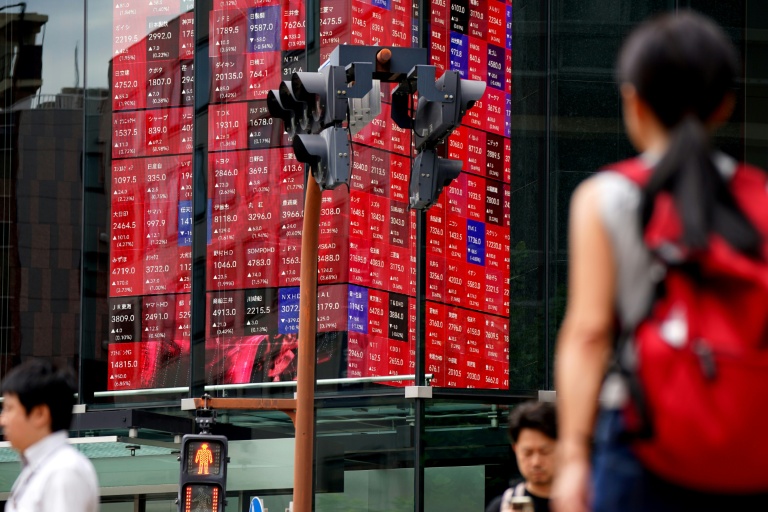Asian markets displayed mixed results on Wednesday as concerns emerged regarding Japanese exports, prompting investor caution. This uncertainty coincides with anticipation surrounding potential interest rate cuts from US policymakers, which could significantly impact the global economy.
Tokyo’s stock market faced a notable decline, with the Nikkei 225 closing down by 1.5 percent at 42,888.55. Other markets also felt the pressure; South Korea and Taipei reported similar downtrends. In contrast, Hong Kong managed to recover from an initial drop, ultimately gaining during afternoon trading. Shanghai, Sydney, Jakarta, and Bangkok also experienced upward movement, while Manila’s market remained flat.
The backdrop to these fluctuations includes a record half-year revenue announcement from Hong Kong’s stock exchange operator, driven by a resurgence in public listings and trading activity. Meanwhile, the US technology sector faced a selloff on Wall Street, with major companies like Nvidia, Palantir, and Oracle losing substantial market value. This selloff reflects growing concerns over a lengthy rally in tech stocks amid various uncertainties affecting the global economy.
Adding to the economic landscape, official data released on Wednesday revealed that Japanese exports suffered their most significant decline in over four years last month. This downturn has raised alarms among investors about the ongoing effects of tariffs imposed by President Donald Trump on major trading partners.
In related news, Britain reported that inflation hit its highest level in July since last year, primarily due to rising food prices and increased consumer energy costs. Michael Brown, senior research strategist at Pepperstone, noted that this higher-than-expected inflation rate adds further pressure to the UK economy.
As the London and Paris markets opened, both indices faced slight declines, while Frankfurt managed a modest gain. Investors are now closely monitoring an upcoming speech by US Federal Reserve Chair Jerome Powell at the annual retreat of global central bankers in Jackson Hole, Wyoming, scheduled for Friday. Traders are optimistic that Powell’s remarks might offer insights into an anticipated interest rate cut during the Fed’s next policy meeting in September.
In a note from Stephen Innes of SPI Asset Management, he described Powell’s upcoming speech as a “high-wire act.” He emphasized the delicate balance Powell must strike; too dovish a tone could heighten fears of long-term inflation, while a too stern approach might negatively impact equity markets already facing challenges.
In summary, the current state of Asian markets reflects a complex interplay of domestic economic indicators, international relations, and investor sentiment regarding future US monetary policy. As global markets await further developments, particularly from the Federal Reserve and ongoing geopolitical discussions, traders remain vigilant.





































































